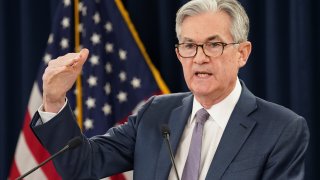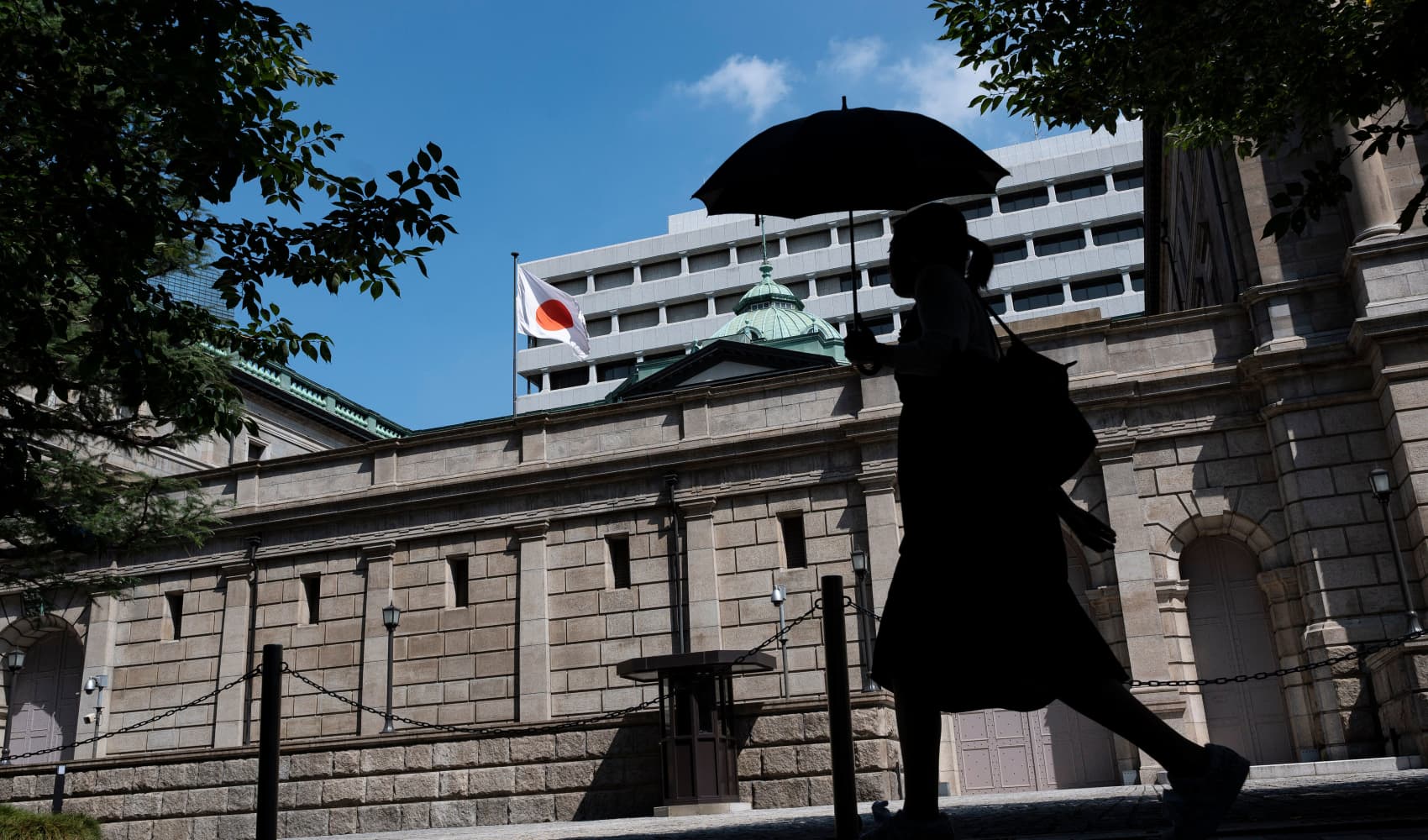
- Fed Chairman Jerome Powell managed to keep the volatile bond market calm and the stock market rallying, during what could have been a turbulent afternoon of trading.
- The central bank boosted its economic forecast, but indicated it does not expect rate hikes at least through 2023, even with the improving outlook and some higher inflation this year.
- "What the Fed has not done is not blink," said James McCann, senior economist at Aberdeen Standard Investments.
Fed Chairman Jerome Powell soothed markets Wednesday and pushed back against speculation the central bank could start to wind down its easy policies.
The Federal Reserve Wednesday sharply boosted its economic growth outlook, but indicated it still sees no rate hikes through 2023. It also expects higher inflation this year, but only temporarily.
Speaking to the press, Powell reinforced the message that the Fed will not move away from zero interest rates or its bond purchases any time soon. His comments defused market pros' concerns that the central bank would soon discuss unwinding some of its easing programs.
We're making it easier for you to find stories that matter with our new newsletter — The 4Front. Sign up here and get news that is important for you to your inbox.
The futures market had also begun to price in interest rate hikes beginning in 2023.
"I thought this was one of the best press conferences we've seen from Powell," said Jim Caron, head of global macro strategy at Morgan Stanley Investment Management.
"He got up there and kind of rocked it, and said: 'This is what we're doing. This is what's going on. I said patient and I meant it,'" Caron said. "Wow, mission accomplished."
Money Report
Stocks climbed after Powell's comments
Caron said the "reflation trade is intact," and Powell avoided some of the market backlash that occurred during previous comments.
"The last time he spoke 10-year yields were beginning to rise to 1.50%," Caron said. "Everybody expected him to talk things down, and he didn't do it."
Caron added that options pricing indicated investors expected that the central bank's meeting and Powell's press briefing could have resulted in one of the most volatile Fed events in months.
But markets were relatively calm.
Treasury yields came off their highs of the day and stocks moved higher. The Nasdaq Composite reversed its losses, ending up 0.4%. The Dow Jones Industrial Average closed above 33,000 for the first time, ending the day at a record 33,015, a gain of 0.6%.
"What I'm telling you is the stance of monetary policy we have today, we think is appropriate," Powell said during his afternoon press briefing.
Though there had been speculation that the Fed would signal that it might be prepared to discuss dialing back its bond purchases, Powell said that wouldn't happen until the economic data makes "substantial progress."
An improving outlook and no tapering
Bond yields have moved higher on the improving economic outlook, the anticipated boost from the $1.9 trillion fiscal stimulus package, as well as concerns that inflation could heat up.
The 10-year yield has risen in the past six weeks from about 1.07% to a high of 1.68% earlier Tuesday. The yield, which moves opposite price, was at 1.64% late in the day.
Gross domestic product is expected to increases by 6.5% in 2021 before slowing in later years, according to updated projections from the members of the Federal Open Market Committee.
"I think the market was looking at it for a few directions, just trying to understand to the extent of which the Fed would upgrade its view, based on an additional $2 trillion in stimulus," said James McCann, senior economist at Aberdeen Standard Investments. "What the Fed has not done is not blink."
The pressure was on going into the meeting. Goldman Sachs economists said in a note that the meeting would be "one of the most critical events for the Fed in some time."
Powell reiterated the Fed is not ready to taper.
"Until we give a signal, you can assume we're not there yet," he said. "As we approach it, well in advance, well in advance, we will give a signal that yes, we're on a path to possibly achieve that, to consider tapering."
Walking a fine line
Greg Faranello, head of U.S. rates at Amerivet Securities, said Powell managed to walk a fine line during his briefing.
He said the market behaved as if it came around to Powell's view. The 10-year Treasury yield fell, and the yield curve — or the difference between rates on various maturities — flattened, Faranello said.
"He's a maestro himself. He is because of what he's managed to say... 'we want inflation higher. We want higher growth...we want all these things and we want rates low too,'" Faranello said. "Without doing anything — think about it — he got it."
Michael Arone, chief investment strategist at State Street Global Advisors, said the Fed's message about inflation not being a problem helped turn the Nasdaq around.
"The biggest thing that Powell has said is the Fed is not fearful of the inflation boogeyman," Arone said.
"He described inflation this year as 'transient' not transitory as everyone is saying. And then he sees it falling," Arone added. "As a result you're seeing rates fall and the Nasdaq shoot up."






